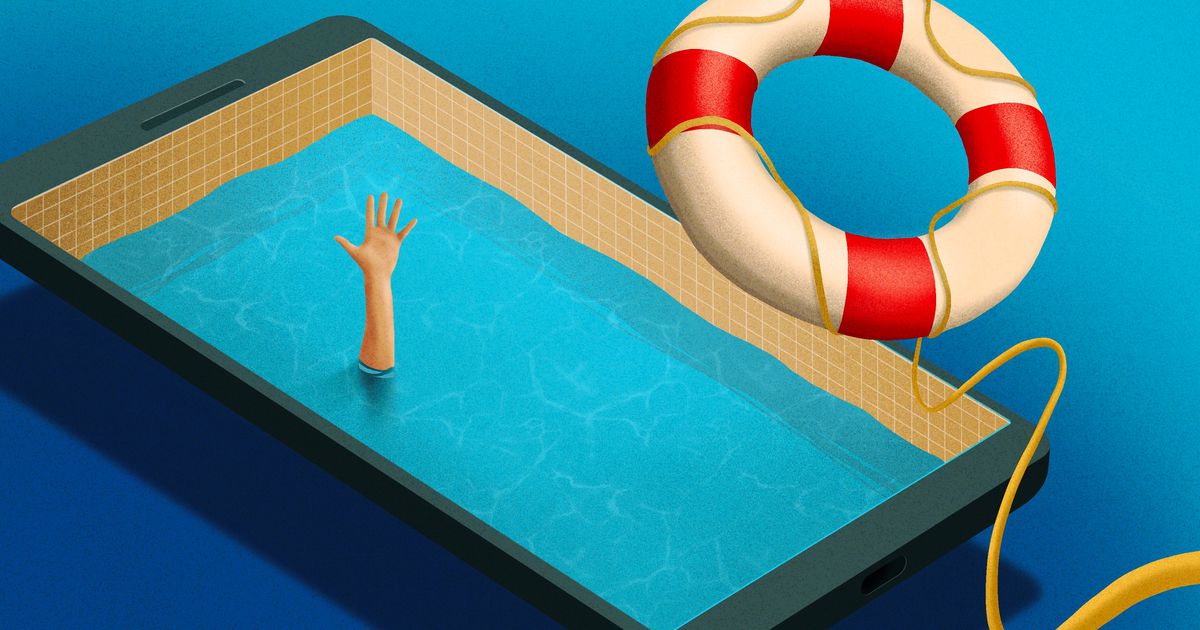Hall. People sit on chairs in front of computer screens. They rowed, toiled, sighed. These are the people who struggle with the “digital divide” on a daily basis. Come here to try to remedy their imperfections. Send an email, open a file, connect to a website …
Moussa Kante, 33, is a digital broker at Espace Goutte-d’Or, in the 18th arrondissement in Paris. He walks between the tables, gives advice, attentive to the smallest gestures, patient. Thanks to him, the “apprentices” improve: they plant themselves, wake up and learn.
“Right click. You’re not listening! Now we’re going to add Therese’s address, click on it! You didn’t receive the email because there’s a comma at the end of the address, and all of a sudden it didn’t go … I’ll put it on the board, tell me when it’s good.” They listen intently, sometimes raising their fingers, wondering and waiting for answers. “There, you have to click on the icon, not below, above. Here! We saw how to create a file on Monday. I’ll ask you to do the same as me. Go behind it. Take your mouse. Ma’am, look good because the explanation is for you. Today is the last session.” .
Moussa Kante started with the basic things. Turn on and off the computer, familiarize yourself with the keyboard, and use the mouse. Then he went to the mall. Altogether, eight sessions of two hours each, which will suffice for some. For the others it will take another two. He explains that he encourages his students not to give up, to continue their efforts. Enter the data, find the information, complete the Excel table … “There is a curiosity about a computer tool. Most of the procedures are done online. Make an appointment at the CAF, at the doctor, it is done via the Internet, even consultations. The epidemic has speeded up the movement.”
“Private life” exercises
Every year, 350 to 400 people are trained: people in their fifties, but also younger people, in their twenties, and immigrants in particular. “In their countries, they did not have access to this tool. The workshops are for people from town, especially from the neighborhood, who have priority. Otherwise, we are redirecting them to the digital space of their area or the media library.” With “user” access, trainees can review what they learned in training for a few hours. Others will return to improve their skills during “private life” training periods. They will learn how to manage administrative documents, search for information or beware of online scams … “We’ll also find out how social networks, Facebook and Twitter work, organize smartphone courses, etc.”
Musa Kante is sometimes found “A little hard” With his “students” But he notes that in the end they always thank him. Totaling: “It’s complicated to focus for two hours on the screen. They want to do everything right away, and learn quickly. I advise them to be patient. If we follow each step in order, then we avoid missing things.”
Registration fee – because free is seldom synonymous with attendance – is at a discount: € 20 for an eight session, € 10 for four.
“What saves them is the use of a smartphone.”
To support Moussa Kante, there is Winnie, 22, who is also a mediator, in the civil service. Still surprised: “I wondered how these people managed to survive. They didn’t even know how to start the computer … I was surprised honestly, I didn’t know there was such a big hole.” Winnie takes a breath: “For most of them, they have worked for twenty years. When they are unemployed, they find that they need computers. What saves them is the use of a smartphone. What they know about the phone helps them. And the chance for them is to be in Paris. In the countryside, I don’t know what.” If they had structures that could hold them. From the moment they were here, they passed over feeling uncomfortable with computers. “
And “trainees”, what do you think? Pascal, 53, carpenter. “I had no idea. I hope I can use it for my business. My manager asked me to know how to use a computer, take quotes, write a quote … I’ll keep going, I have ten years left to work.” Next to him, Fatou, 52, is looking for work. “I hope I can manage,” she said. It is for everyday life. To do this on your own. Moses explains it well. “ During the training period, she gave him a respectable appreciation: “You are eligible.”

“Certified gamer. Problem solver. Internet enthusiast. Twitter scholar. Infuriatingly humble alcohol geek. Tv guru.”





